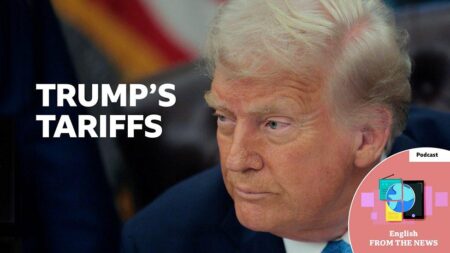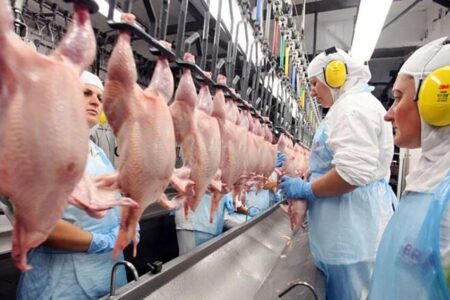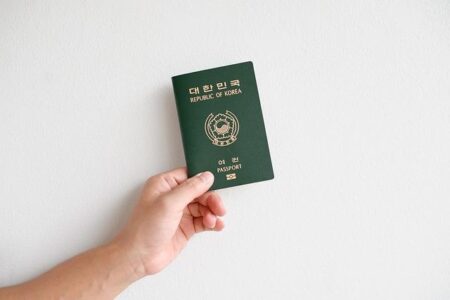Trade tensions escalate as President Trump threatens Canada with new tariffs on dairy and lumber, sparking concern among Canadian officials. In response, B.C. Premier John Horgan proposes tolls on truckers to mitigate potential economic impacts.
Browsing: Economy
In a recent address, Xi Jinping asserted China’s economic strength, emphasizing resilience in the face of global challenges. He reaffirmed the nation’s commitment to its sovereignty, signaling that China will not retreat from its strategic ambitions.
As trade tensions escalate under Trump’s tariff threats, Brazil’s bond market emerges as a potential haven for investors. With attractive yields and relative stability, it offers a compelling alternative amidst global economic uncertainty.
French President Emmanuel Macron is set to address the growing global ‘uncertainty’ in a key speech this week. The address aims to outline France’s stance on pressing international issues, including economic challenges and geopolitical tensions.
Trump’s tariffs have ignited a wave of anger and retaliation among trading partners, fueling market unease. As nations respond with their own tariffs, analysts warn of potential disruptions in global trade and the economic ramifications that could follow.
Global stock markets took a hit as President Trump announced new tariffs on Canada, Mexico, and China, escalating trade tensions and raising concerns about potential economic repercussions. Investors reacted swiftly, driving down major indices.
The Associated Press reports that Trumpﻗs tariffs on Mexico, Canada, and China target a range of goods, including agricultural products, electronics, and vehicles. This trade policy aims to bolster domestic industries but risks escalating tensions and consumer prices.
Starting Tuesday, Trump’s tariffs on imports from Canada and Mexico will take effect, affecting a range of goods. Consumers could see rising prices on products such as steel, aluminum, and certain food items as costs increase along the supply chain.
Spain’s economy has transformed from crisis to strength, boasting robust growth and low unemployment. Strategic reforms, strong exports, and a burgeoning tech sector have positioned it as a model for European recovery, drawing admiration and investment.
Ukrainian President Volodymyr Zelensky announced that Ukraine is prepared to sign a key minerals deal with the United States. This agreement aims to bolster cooperation in resource extraction and enhance energy security amid ongoing geopolitical tensions.
Argentina’s government has approved the export of live cattle amid a surge in beef shipments. This decision aims to capitalize on high global demand for Argentine beef, enhancing trade opportunities while potentially impacting domestic supply and prices.
As China experiences a slowdown reminiscent of Japan’s post-bubble era, analysts question whether its economy will mirror Japan’s trajectory. Key factors include demographic challenges, debt levels, and potential policy responses that could shape the future.
The recent Trump tariffs aim to protect American industries from foreign competition, advocating for job preservation and economic stability. Proponents argue that these measures create a more equitable trade environment, ultimately benefiting U.S. workers.
Canada’s economy defied expectations with a surprise annualized growth of 2.6% in the fourth quarter, according to a Reuters report. This robust performance highlights resilience amid global uncertainties, signaling potential strength in consumer spending and investments.
Brazilian President’s approval rating has plummeted as soaring inflation continues to impact household budgets. Recent surveys indicate growing public discontent, raising concerns about his administrationﻗs economic policies and future electoral prospects.
In a recent announcement, former President Donald Trump hinted at the possibility of imposing tariffs on Canada, Mexico, and the European Union in the coming weeks. This move, targeting trade partners, could escalate existing tensions and impact global markets.
Brazil’s chicken exports are soaring past expectations, driven by strong global demand and competitive pricing. The surge highlights the countryﻗs pivotal role in the global poultry market, with significant implications for producers and trade dynamics.
Japan’s low passport ownership rate has been attributed to a confluence of factors, including a weakened yen and rising safety concerns among citizens. As travel becomes more expensive, many Japanese remain hesitant to venture abroad, fueling this trend.
Brazil’s growing soybean acreage, driven by robust global demand, may encounter hurdles as China, its largest buyer, reassesses import strategies. Trade tensions and environmental concerns could reshape the landscape, impacting Brazil’s agricultural future.
Indian shares fell amid rising concerns over US economic growth and a significant foreign sell-off. Investors reacted to shifting global market dynamics, prompting broader declines across key sectors, heightening caution among traders.




















